Fellows meet and interact with members of the leadership team on a weekly basis.
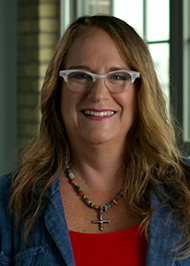
Director
Amy Hewitt, PhD, MSW, is director of the Institute on Community Integration (ICI), A University Center for Excellence in Developmental Disabilities (UCEDD): Dr. Hewitt serves on doctoral and master’s committees for students across a wide variety of academic and professional departments. Her responsibilities within the UCEDD include outcome and data reporting on the effectiveness of the UCEDD training program and post training leadership roles of ICI Fellows. She also directs several federal and state research, evaluation and demonstration projects in the area of direct support staff work-force development and community services. She has an extensive background and work history in intellectual and developmental disabilities and has worked in various positions over the past 29 years. Dr. Hewitt lives with an adult family member who has a diagnosis of autism and for whom she helps coordinate Consumer Directed Support Services through Minnesota’s Home and Community Based Waiver Services.

Medical Director
Andrew (Andy) Barnes, MD, MPH, is an Assistant Professor of Pediatrics at the University of Minnesota Medical School, where he directs the fellowship program in Developmental-Behavioral Pediatrics. Dr. Barnes’s clinical work with children and families focuses on helping children gain mastery of their own mind-body interactions. Some of the ways that he helps children become more competent in this regard includes teaching them how to use biofeedback, mindfulness, and self-hypnosis to help themselves better regulate their own thoughts, feelings, and actions. Dr. Barnes’s research focuses on promoting resilience in children under stress, and on the interplay between behavior and biology. His current work focuses on the health and self-regulation of children growing up in homeless families. Dr. Barnes also enjoys teaching pediatric trainees about self-regulation and the fundamentals of early child development and behavior and helps direct professional trainings in pediatric clinical hypnosis. He frequently presents and teaches on these topics at local and national symposia and conferences.
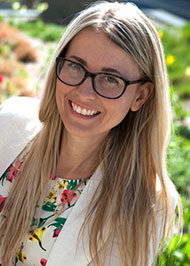
Research Director
Jessica Simacek was a past MNLEND Post Doctoral Fellow and is now a Research Associate at ICI. Her PhD is in Educational Psychology, Special Education with a minor in Applied Behavior Analysis from the University of Minnesota. She also earned her undergraduate degree in Psychology at the University of Minnesota. During her doctoral program, Jessica worked in the Minneapolis Public Schools on implementation of multi-tiered systems of support, served as key personnel in the development and oversight of the Telepresence Behavior Laboratory, taught courses on classroom management and applied behavior analytic problem solving, and conducted studies in the areas of telehealth and communication intervention in autism and Rett syndrome. She has over 10 years clinical experience in early intensive behavioral therapy for children with autism and related neurodevelopmental disabilities, spanning home, center, and school-based settings.
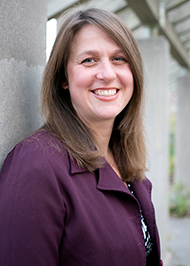
Assistant Director
Jennifer Hall-Lande, PhD, is a Research Associate with the Institute on Community Integration (ICI). She is currently CDC’s Act Early Ambassador for Minnesota. Dr. Hall-Lande’s principal research and community outreach activities have been focused on screening, assessment, and interventions for children at risk for neurodevelopmental disabilities. Additional areas of focus have been ASD prevalence rates in diverse populations and policy issues around children and adult ASD waivers. Further, Hall-Lande has a focus on outreach to culturally and linguistically diverse communities with an end goal of increasing screening rates and reducing the age of diagnosis for children from culturally and linguistically diverse communities in Minnesota.
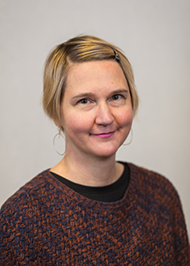
Faculty-Mentor, Family Faculty
Rebecca Dosch Brown serves as a MNLEND faculty-mentor under the Family discipline. She also directs MNLEND data analyses, reporting and quality improvement (QI) efforts, especially in equity and inclusion. Rebecca further directs the UMN Disability Policy and Services graduate certificate program and leads its core course, OLPD 5356.
Her larger ICI role is as an interdisciplinary education director. In this role, she helps develop interdisciplinary courses and spurs innovative research and training collaborations with UMN campus and community partners.
Rebecca came to ICI in 2015 after 20+ years in higher education as a lecturer, teacher trainer, editor, and adviser both overseas and stateside. She is currently a PhD candidate in the UMN Humphrey School of Public Affairs, with a focus on youth policy at the intersection of race and disability. She is also the parent and active ally of her adult son who has a diagnosis of autism. Her work goal is to co-design and participate in transformative anti-ableist and anti-racist efforts, so as to build a more inclusive and just world for all.
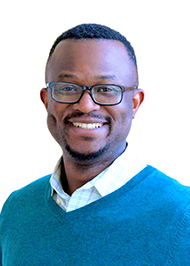
Faculty-Mentor, Community Faculty
Macdonald M. Metzger, M.S. is DirectCourse Quality Coordinator at the Institute on Community Integration, Research and Training Center on Community Living, University of Minnesota. He provides quality assurance for the on-line College on Direct Support curricula. He supports the DirectCourse writing team to clarify roles and responsibilities; ensures that resources and structures are in place, authors are meeting their deadlines, and keeps a calendar of content development. He also serves as a writer and reviewer of College of Direct Support materials.
Macdonald has a Master's degree in Human Services, with a specialization in Nonprofit Management and Leadership. He has over five years of hands on experience providing quality services and supports to people with disabilities in residential, vocational, and community settings. His personal connection to people with developmental and intellectual disabilities, underscored by the memory of his elder brother Amagashie, can be seen in every aspect of the passion, willingness and commitment he has shown towards advocating for programs and services that promote the quality of life for people with disability.
He has over ten years of work experience as a multi-media journalist. Previous employers include, Lutheran Social Service of Minnesota, MN Department of Human Services/MSOCS, Catholic Charities New York City, and the United Nations Mission in Liberia (UNMIL Radio) as a Broadcast Journalist.
Macdonald has also consulted and volunteered for various local and international nonprofit organizations including the International Center for Transitional Justice (New York/Liberia Program), Afrobeat Radio (WBAI 99.5 FM New York), and KFAI 90.3 FM (Minneapolis).
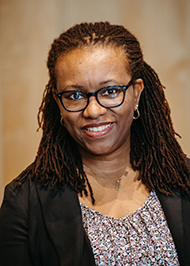
Interdisciplinary Education Coordinator
Ajibiké (BiKé) Ojomo, MPH serves as an Interdisciplinary Education Coordinator at the Institute on Community Integration (ICI). She coordinates and supports the overall development and training of the Minnesota Leadership Education in Neurodevelopmental and related Disabilities (MNLEND) fellowship program and the OLPD 5356 – Disability Policy and Services graduate certificate program.
Prior to her work at ICI, BiKé has been in Finance for over 20 years. She was a Finance Specialist here at the University and also outside of the University.
BiKé holds a Bachelors degree in Banking and Finance and a Master’s in Public Health from the University of Minnesota. She’s a Certified Mental Health Coach. She coaches middle school girls and empowers them to find their Power, and Change Their World by Taking Action, through the (Girls Taking Action) project.
BiKé also has a Certificate in Project Management. She partners with community-based organizations as a consultant in creating wellness and mental health disability awareness.






 FIND OUT HOW YOU CAN
FIND OUT HOW YOU CAN